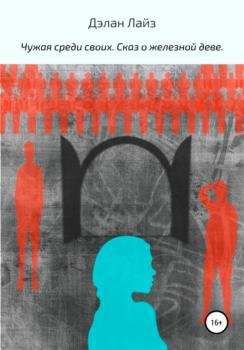Зарубежная драматургия
Различные книги в жанре Зарубежная драматургияWarum Vater?
Wilhelm Tramitzke, geboren im Februar 1926 in Wischniovka, Bessarabien, ein Landstrich zwischen den Flüssen Djestr und Pruth, heute Moldaurepublik, ist Nachfahre deutscher Kolonisten in Bessarabien, welche in den Jahren 1814 bis 1842 Mutterkolonien errichteten. Bis zur Umsiedlung 1940 (Heim ins Reich) bestanden durch ihre Nachfahren bereits 150 Tochterkolonien mit deutschen Namen. Die Umsiedlung nahm ihnen ihre Heimat, und nach der Ansiedlung in Polen verloren sie 1945 zu zweiten Mal ihre Heimat. – In seiner Geschichte beschreibt er die große Liebe zwischen zwei Menschen, welche schon im Sandkasten unzertrennlich waren. Die Kinder, Sohn eines Metzgermeisters und Tochter eines Apothekers kamen, trotz ihrer großen Liebe, durch den Standesdünkel des Apothekers nicht zusammen, weil er der Meinung war, dass es unter seiner Würde wäre, einen Metzger in der Familie zu haben. Ihm schwebte ein Akademiker vor. Durch Intrigen, Verleumdungen und durch sein Verbot einer Zusammenkunft der beiden, brachte es der Apotheker fertig, dass ein Wiedersehen so gut wie unmöglich war. Dass seine Tochter bereits volljährig und eine ausgebildete Apothekerin war, scherte den Apotheker nicht. Auch der Metzgersohn hatte bereits seinen Metzgermeister gemacht, und stand beruflich voll im Trend, doch auch das scherte den Apotheker nicht. Das veranlasste den Metzgermeister, nach Argentinien auszuwandern, in der Hoffnung, dass seine große Liebe ihm nachfolge. Ihre gegenseitige Sehnsucht war unbeschreiblich, doch alles kam anders.
Höhenflug und zurück
Idgie hat ihre erste eigene Wohnung und glaubt, endlich fest im Leben zu stehen. Da begegnet ihr Toni, der alles komplett auf den Kopf stellt. Er hat es satt, dass ihm immer das fehlende Geld im Weg steht. Mit der Hilfe von Idgies Onkel schaffen sie sich eine lukrative Einnahmequelle im Drogenmilieu – bis der Höhenflug ein jähes Ende nimmt.
Чужая среди своих. Сказ о железной деве
Она голубоглазая девушка, которая пришла из далека, поставив себе не выполнимую по масштабности цель. Ещё не давно она жила тихой и мирной жизнью, но это продолжалось не долго. И вот она уже стоит возле огромных ворот, которые готовы открыться перед ней. Они таят в себе новый, и неизведанный для неё мир. Неожиданная для многих встреча с этой девушкой, может навсегда изменить их жизнь, и историю их цивилизации. Неизвестно кто она такая, и откуда пришла. Пока лишь ясно, она одна, но решила пойти против тысяч людей с алыми глазами. Ею движут определенные цели, и она готова пойти на любые меры, чтобы получить желаемое. Не боясь коварных сетей и интриг в этом месте, она плетёт среди них свои. Получиться ли у неё осуществить свой замысел, выбраться из этого опасного места живой, и обрести новый дом? Прежде чем отвечать на эти вопросы, ей и самой предстоит оказаться в сетях одного человека, который может уже изменить её судьбу.
Siana
Siana ist derart mit ihrem Job auf der Pferde-Ranch beschäftigt, dass ihr sonst keine Zeit für andere soziale Kontakte bleibt. Als sie ausgerechnet dort Kay kennenlernt, wird ihr Leben von jetzt auf gleich ziemlich auf den Kopf gestellt. Der Sunnyboy bringt nicht nur Sianas Gefühlswelt mächtig durcheinander, sondern auch ein Familiengeheimnis kommt ans Licht. Ob es Siana trotz allem schafft, die nötige Ruhe zu bewahren, um sich weiterhin um die ihr anvertrauten Pferde zu kümmern? Besonders River benötigt schließlich ihre Hilfe! Oder ist es eher anders herum?
Pygmalion and Other Plays
“Pygmalion and Other Plays” is a collection of eleven of George Bernard Shaw’s most studied and performed plays. The impact made by the Irish playwright, political activist, and Noble Prize-winner on Western theater and culture cannot be overstated. The plays contained in this collection showcase his genius and creativity and it is not hard to understand why his works continue to influence generations of writers and actors. Included are such frequently adapted classics as “Arms and the Man”, a biting and witty critique of the often falsely romantic depiction of war and the empty nobility of soldiers, “Candida”, a surprisingly modern story of a strong and intelligent woman who is the true force behind her husband’s success, “Pygmalion”, the classic and often adapted story of the transformation of Eliza Doolittle from a poor flower girl into a sophisticated lady at the hands of Henry Higgins and Colonel Pickering, “Saint Joan”, the sensitive and nuanced portrayal of the iconic Joan of Arc which shows her as a complex, misunderstood, and deeply human character, as well as many more brilliant dramatic plays. Shaw’s works continue to entertain and captivate audiences with their insights into human nature and the shortcomings of our modern society. This edition includes a biographical afterword.
Saint Joan
First performed in 1923, “Saint Joan” is the celebrated play by George Bernard Shaw, the Irish playwright, social activist, and Noble Prize-winner. Premiering three years after Joan of Arc was canonized by the Roman Catholic Church, Shaw wrote “Saint Joan” because he was dissatisfied with how the saint was often portrayed in literature and history and wanted to present a more realistic and human Joan. Considered Shaw’s only tragedy and one of his most significant works, “Saint Joan” follows the famous French soldier and commander from her life as a peasant girl who claims to experience visions sent by God to guide her, to her stunning and unexpected military victories, and finally to her trial and execution. Shaw’s Joan is a complex character: brave, devout, and clever, but also intolerant, naïve, and foolish. Joan struggles to understand why she is not embraced by her monarch and his court after her impressive victory at Orleans and remains confident in her faith even as she faces torture and a lifetime of imprisonment or death at the hands of her accusers. “Saint Joan” endures as one of Shaw’s most adapted and performed plays for its nuanced portrayal of a fascinating and often misunderstood historical figure. This edition includes a biographical afterword.
Fool for Love & the Sad Lament of Pecos Bill
In Fool For Love, situated at a seedy motel on the edge of the Mojave Desert, transient lovers May and Eddie spin around in a room in a relentless struggle for power and truth. Through recollections and dreams, multiple versions of a fierce and fatal love story are told. The Sad Lament of Pecos Bill on the Eve of Killing His Wife, another kind of love story in the form of a comic operetta, takes a distaff view of the Southwest's legendary cowpuncher and his mate Slue-foot Sue, with irreverent commentary on American heroes and heroics. "No one knows better than Sam Shepard that the true American West is gone forever, but there may be no writer alive more gifted at reinventing it out of pure literary air." -Frank Rich, The New York Times "Mr. Shepard is the most deeply serious humorist of the American theater, and a poet with no use whatever for the 'poetic.' He brings fresh news of love, here and now, in all its potency and deviousness and foolishness, and of many other matters as well." -Edith Oliver, The New Yorker Sam Shepard (1943) is a playwright, actor, author, screen writer, and director whose work is performed on and off Broadway and in other theaters across the country. In 1979, he received the Pulitzer Prize for Drama for his play Buried Child. In 1983, he was nominated for an Academy Award for Best Supporting Actor in The Right Stuff. His other famous works include True West, A Lie of the Mind, and Curse of the Starving Class.









